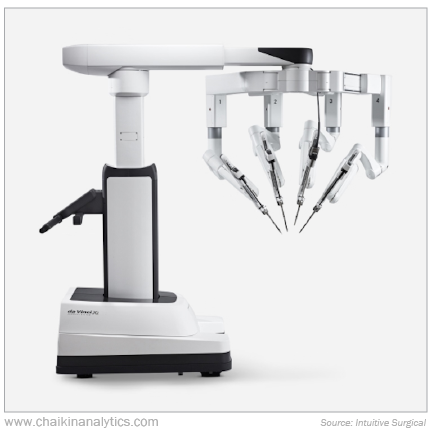Top Growth Stocks to Consider Amid Market Uncertainty
Rising economic uncertainty and increasing interest rates create challenges for growth stocks. Investors focused on growth have faced significant setbacks due to the recent sell-off in the stock market, influenced by U.S. trade policies and reactions from other countries. This turmoil has led many companies to confront serious obstacles. Nevertheless, long-term investors recognize that identifying resilient businesses during tough market conditions can help build wealth.
Investing Opportunities for $1,000
Our analysts highlight three stocks that stand out as strong investment opportunities at this time.

Image source: Getty Images.
1. Coupang (NYSE: CPNG)
Coupang has adopted a model similar to that of Amazon, catering to the South Korean market. With over 100 fulfillment centers, more than 99% of Coupang orders are delivered within 24 hours.
This efficient shipping network draws customers to its Wow membership program, which includes free shipping, food delivery, and a video streaming service. The growing membership base in turn attracts more third-party merchants and restaurants, contributing to significant revenue growth.
Among its key growth initiatives, Coupang expanded into Taiwan in 2022 and anticipates reaching breakeven faster than it did in Korea. The company’s acquisition of Farfetch last year fortified its position in luxury fashion. Additionally, Coupang may explore digital advertising, a profitable avenue for other e-commerce entities like Amazon.
Management expects steady revenue growth, aiming for an EBITDA margin surpassing 10% by 2024, up from 4.5%. Improved supply chain efficiency should provide operating leverage as the company scales its operations in Taiwan and its delivery service, promising solid earnings growth.
With its stock trading at a forward EBITDA ratio under 23, Coupang appears undervalued compared to its historical average. Potential for significant earnings growth makes this a compelling buy for patient investors.
2. The Trade Desk (NASDAQ: TTD)
When marketers consider digital advertising, they often turn to Facebook or Google. However, these platforms only provide a single channel for ads. In contrast, The Trade Desk offers a comprehensive solution for multi-channel campaigns, enhancing ad performance across platforms like streaming video and podcasts.
The Trade Desk utilizes machine learning algorithms to optimize clients’ advertising efforts, leveraging a combination of client and third-party data. This data-centric approach gives the company a competitive edge, allowing it to charge more for its services by maximizing clients’ advertising budgets.
Despite a disappointing earnings report in February, which triggered a stock sell-off, CFO Laura Schenkein clarified that the underperformance was not due to competition but a failure to execute. Moving forward, The Trade Desk aims to capitalize on new opportunities while increasing operating costs.
Although this strategy may constrain short-term earnings, the company has substantial potential for margin expansion as a software business with low fixed costs. Its gross margin hovers around 80%, suggesting increasing profitability as it grows.
Currently, The Trade Desk’s stock trades at an enterprise value to expected sales multiple of 8.6, which is reasonable for a company poised to gain market share in a rapidly expanding field while enhancing profit margins.
3. Datadog (NASDAQ: DDOG)
Many enterprises face challenges managing the substantial data from various software solutions, often spread across multiple silos. Datadog addresses this issue by aggregating data and presenting it on a unified dashboard, simplifying system monitoring.
The data observability sector is evolving swiftly as companies seek to integrate more services and migrate to cloud platforms. Datadog’s effective “land-and-expand” strategy has positioned it for continued growth, enhancing its offerings to include cloud security and service management solutions.
This approach has yielded a high net revenue retention rate in the 110s, with an increase in the proportion of customers using multiple products. Currently, 50% of clients utilize four or more products, up from 42% two years ago, and 12% employ eight or more, growing from 6% over the same timeframe.
# Datadog’s Position Strengthens Amidst Transition Costs for Clients
Switching observability providers imposes significant overhead costs, especially when integrating data silos with a new partner. Companies risk losing valuable data during this transition, in addition to the need for retraining users on unfamiliar systems. These challenges create strong switching costs that fortify customer loyalty.
Datadog is enhancing accessibility for non-technical users through its Bits AI chatbot, which further solidifies its role within enterprise environments.
The company’s stock currently trades with an enterprise value approximately 10 times higher than analysts’ revenue expectations for 2025. While this valuation is not the lowest on the market, analysts anticipate robust growth, projecting annual sales increases of about 20% in the coming years. Datadog also benefits from high operating leverage typical of software companies, potentially leading to even higher earnings growth over the long term.
Should You Invest in Coupang Now?
Before considering an investment in Coupang, weigh the following:
The Motley Fool Stock Advisor analysts recently highlighted their selection of the 10 best stocks for current investment opportunities, and Coupang was notably absent from this list. The retained stocks are believed to have significant potential for substantial returns.
For example, when Netflix was selected on December 17, 2004, a $1,000 investment at that time would now be worth $594,046!* Similarly, had you invested $1,000 in Nvidia when it made the list on April 15, 2005, your investment could now be valued at $680,390!*
Importantly, the average return for Stock Advisor stands at 872%, which outperforms the 160% return of the S&P 500. Stay informed by joining Stock Advisor to receive the latest top 10 list.
*Returns for Stock Advisor as of April 21, 2025
John Mackey, the former CEO of Whole Foods Market, is a board member of The Motley Fool. Adam Levy has positions in Amazon. The Motley Fool also holds positions and recommends Amazon, Datadog, The Trade Desk, and Uber Technologies, as well as Coupang.
The views and opinions expressed herein are those of the author and do not necessarily reflect those of Nasdaq, Inc.








